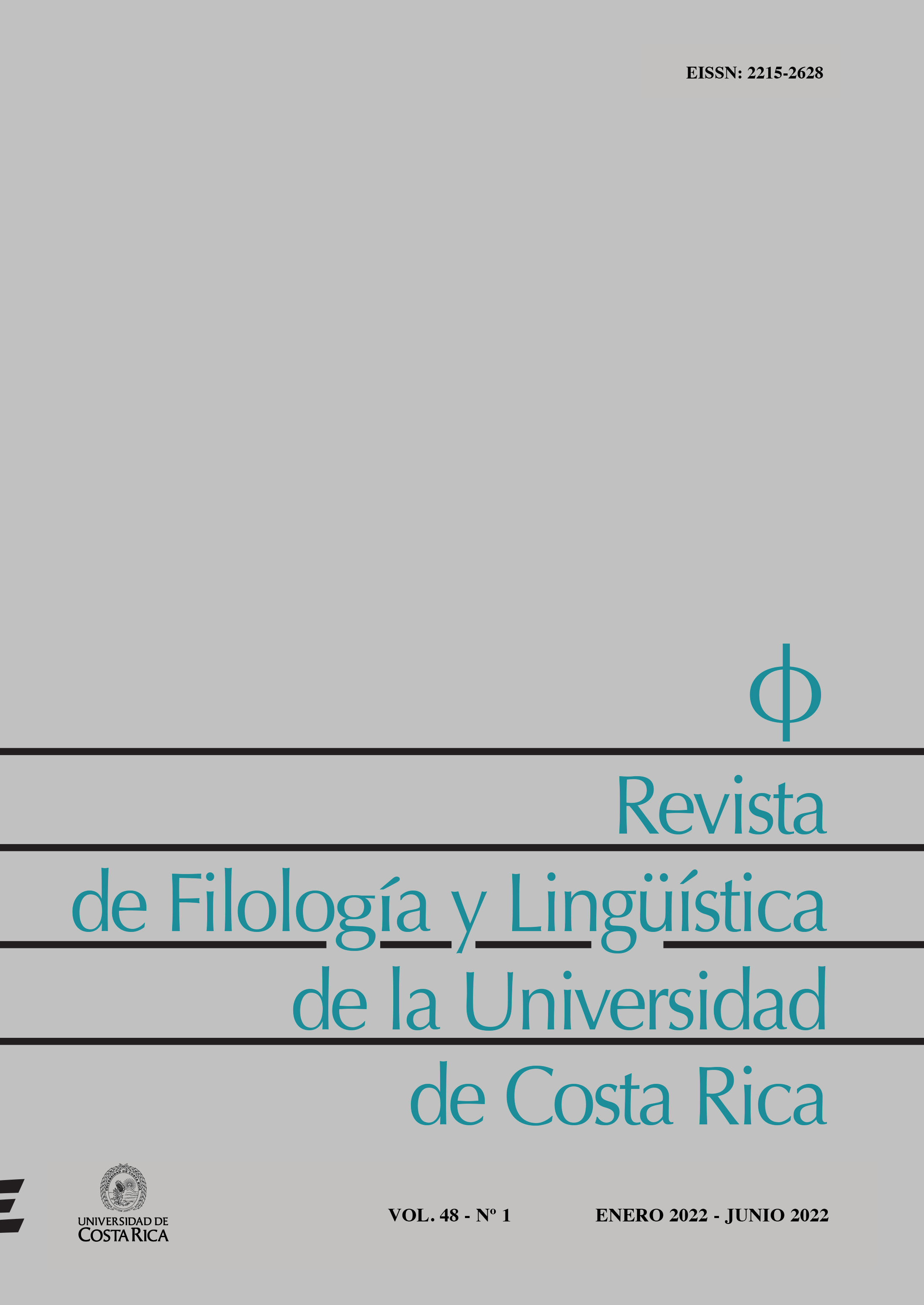Resumo
This article presents the evolution of the Golem’s myth in Ian McEwan’s Machines Like Me using the myth’s actualisation presented in Borges’ poem “The Golem”. An analysis of how the mythic roles embodied by the main characters of the novel are reverted is provided, establishing a parallelism between the myth and the modern theme of androids. The result of this appears to be catastrophic for humanity as the artificial creation of life and the inclusion of androids in society is perceived as a threat due to the fact that ancient creation myths remain in humankind’s memory, especially those where humans’ creations defy their creators. Adam, the android who plays the role of the Golem ultimately reveals himself as a perfect creation, far from what his mythic counterpart is supposed to be and Charlie, his owner and creator, afraid of being inferior to the android, decides to kill him in order to reaffirm the already established human power over the machines.
Referências
Alazraki, J. (1983). El Golem. In Á. Flores (Ed.), Expliquémonos a Borges como Poeta (pp. 216-236) Mexico City: Siglo XXI editores.
Asimov, I. (1970). Runaround. In I, Robot (pp. 20-34). New York: Street and Smith Publications.
Borges, J. L. (1993a). The Garden of Forking Paths. In Ficciones (pp. 67-78). New York: Everyman’s Library.
Borges, J. L. (1993b). Death and the Compass. In Ficciones (pp. 102-113). New York: Everyman’s Library.
Borges, J. L. (1993c). The Approach to Al-Mu’tasim. In Ficciones (pp. 22-28). New York: Everyman’s Library.
Borges, J. L. (1996a). Afterglow. In Obras Completas I (pp. 37). Barcelona: Emecé Editores.
Borges, J. L. (1996b). El Golem. In Obras Completas II (pp. 263-265). Barcelona: Emecé Editores.
Borges, J. L. (1996c). La Rosa de Paracelso. In Obras Completas III (pp. 387-390). Barcelona: Emecé Editores.
Botero Camacho, M. (2009). El Abismo Lógico (Borges y los Filósofos de las Ideas). Bogotá: Editorial Universidad del Rosario.
Brannigan, J. (2018). The Twentieth and Twenty-First Centuries, 1939-2015. In P. Poplawski (Ed.), English Literature in Context (2 ed., pp. 541-618). Cambridge: Cambridge University Press.
Campbell, J. (2004). The Hero with a Thousand Faces. (3 ed.). Princeton: Princeton University Press.
Darwin, C. (2001). The Origin of Species. Pennsylvania: Pennsylvania State University.
Eco, U. (1984). Apocalípticos e Integrados. Spain: Editorial Lumen.
Eliade, M. (1963). Myth and Reality. World Perspectives. (Vol. 31). New York: Harper & Row.
Foucault, M. (2014). Security, Territory, Population. Lectures at the College de France, 1977-78. (F. Ewald, A. Fontana y M. Senellart, eds.). London: Palgrave Macmillan.
Gallinal, A. M. (2016). Cíborg: el Mito Posthumano. En J. M. Losada (Ed.), Mitos de Hoy: Ensayos de Mitocrítica cultural (pp. 61-70). Berlin: Logos Verlag.
Ishiguro, K. (2005). Never Let Me Go. London: Faber and Faber.
Marlowe, C. (2009). Doctor Faustus. New York: Oxford University Press.
Mathews, P. (2006). The Impression of a Deeper Darkness: Ian McEwan’s Atonement. English Studies in Canada, 32(1), 147-60.
McEwan, I. (2002). Atonement. London: Vintage.
McEwan, I. (2011). Solar. London: Vintage.
McEwan, I. (2019). Machines Like Me. London: Johnathan Cape.
Meyrink, G. (1928). The Golem. London: Houghton Mifflin.
Mitchell, D. (2004). Cloud Atlas. New York: Random House.
Scholem, G. (1965). On The Kabbalah and Its Symbolism. Bristol: Routledge & Kegan Paul Ltd.
Scholem, G. (1978). Major Trends in Jewish Mysticism. New York: Schocken Books Inc.
Scholem, G. (1988). Kabbalah. Jerusalem: Keter Publishing House Ltd.
Shelley, M. (1999). Frankenstein: or the Modern Prometheus. Hertfordshire: Wordsworth Classics Editions.
Wiener, N. (1966). God & Golem, Inc.: A Comment on Certain Points where Cybernetics Impinges on Religion. Cambridge: MIT Press.


